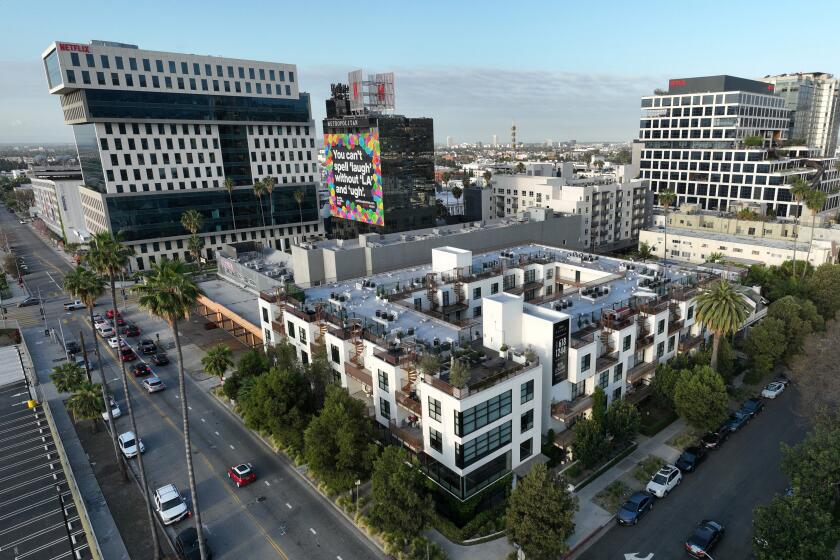Nonprofits allege Los Angeles plan to boost housing development is too weak, illegal

- Share via
Two housing advocacy organizations sued the city of Los Angeles on Thursday, alleging its recent plan to boost home building is inadequate and fails to comply with state law.
In their lawsuit, the groups, Yes In My Back Yard and Californians for Homeownership, allege that the city has not demonstrated its plan can accommodate an additional 255,000 homes as required, in part because the city failed to change the underlying zoning in many neighborhoods.
In a news release, Yes In My Back Yard, or YIMBY, said the need for more housing is even more pressing after January’s fires wiped away thousands of homes in Los Angeles.
“Angelinos are expecting their government to deliver the housing and infrastructure they need to thrive,” Sonja Trauss, YIMBY executive director, said in a statement. “We need to rebuild quickly and efficiently.”
Economists generally blame a lack of home building as the main driver of California’s high prices and rents. The lawsuit filed Thursday covers a complicated process cities go through to try to ensure enough housing can be built. Under the state-mandated process, known as the Housing Element, the city of Los Angeles needed to find land where an additional 255,000 could realistically be built over an eight-year period.
The City Council voted to give final OK to a plan that aims to boost development of market rate and affordable housing. Single family zones will be largely untouched.
To hit that goal, the city changed the underlying zoning in a few communities, including downtown, but relied mostly on a series of new incentive building programs known collectively as the CHIP ordinance, which it approved last week.
Under CHIP, while underlying zoning rules stay the same, developers can exceed those limits on size, height and unit count if they include a certain percentage of affordable units. In general, the incentives can only be used in commercial and existing multifamily zones, not areas reserved for single-family houses.
In the lawsuit brought by YIMBY and Californians for Homeownership, which is funded by the California Assn. of Realtors, the groups allege the city previously committed to changing the underlying zoning of more neighborhoods, and in failing to do so, violated state law.
Matthew Gelfand, counsel for Californians for Homeownership, said Los Angeles initially indicated it needed those additional rezonings to meet its numbers and that by relying on voluntary incentive programs Los Angeles makes it less likely it will produce the large volume of units it needs.
Nora Frost, a spokeswoman with the Los Angeles City Planning Department, said the city’s plan complies with housing element law and that it is a “transformative program, driven by extensive, multilingual community engagement, which will significantly increase housing production throughout the city.”
Alicia Murillo, a spokeswoman for the California Department of Housing and Community Development, which oversees the implementation of the state housing law, said the agency is evaluating Los Angeles’ plan and “will reach out to the city if there are any questions or concerns.”
YIMBY and Californians for Homeownership have a history of suing cities to enforce state housing law.
In November, an L.A. County Superior Court judge found the city of Los Angeles illegally denied 78 affordable homes in Sun Valley in a lawsuit brought by YIMBY.
More to Read
Sign up for Essential California
The most important California stories and recommendations in your inbox every morning.
You may occasionally receive promotional content from the Los Angeles Times.












